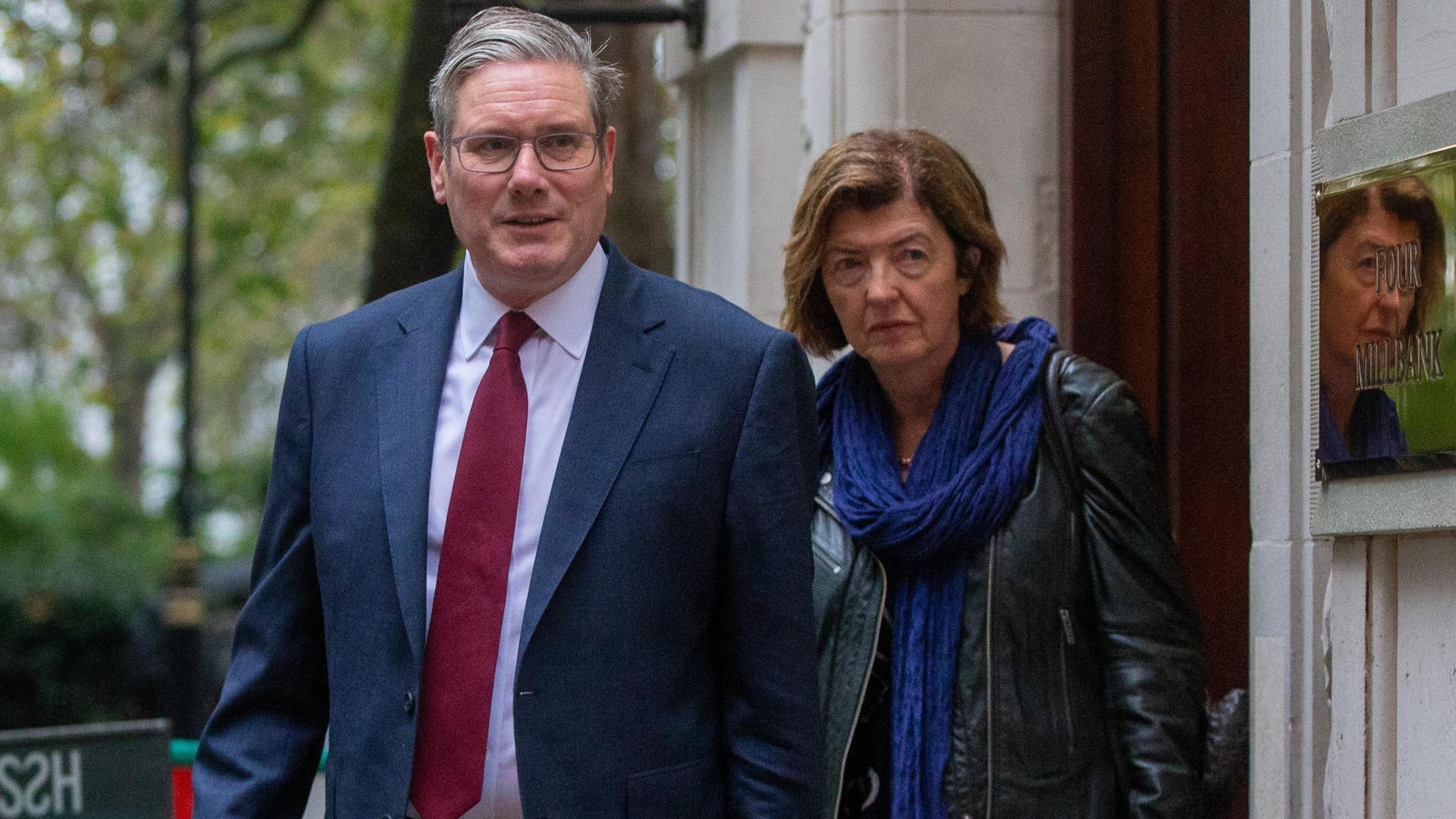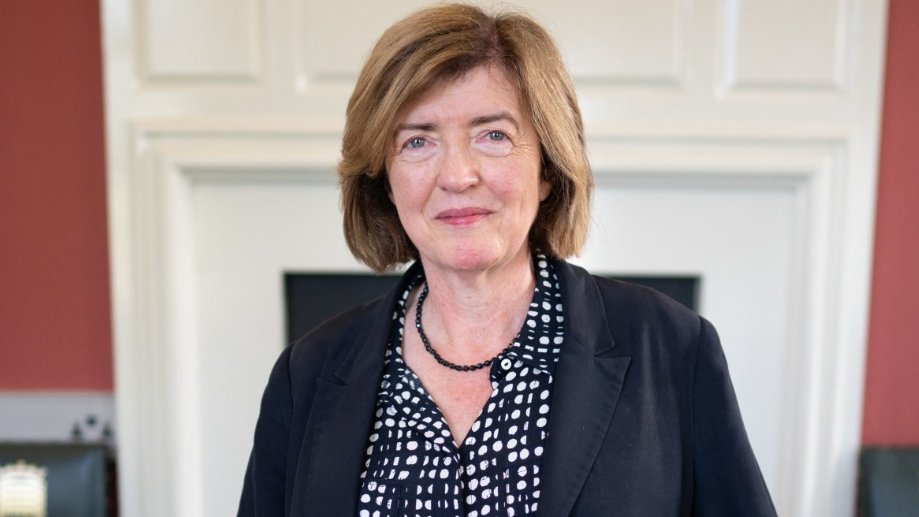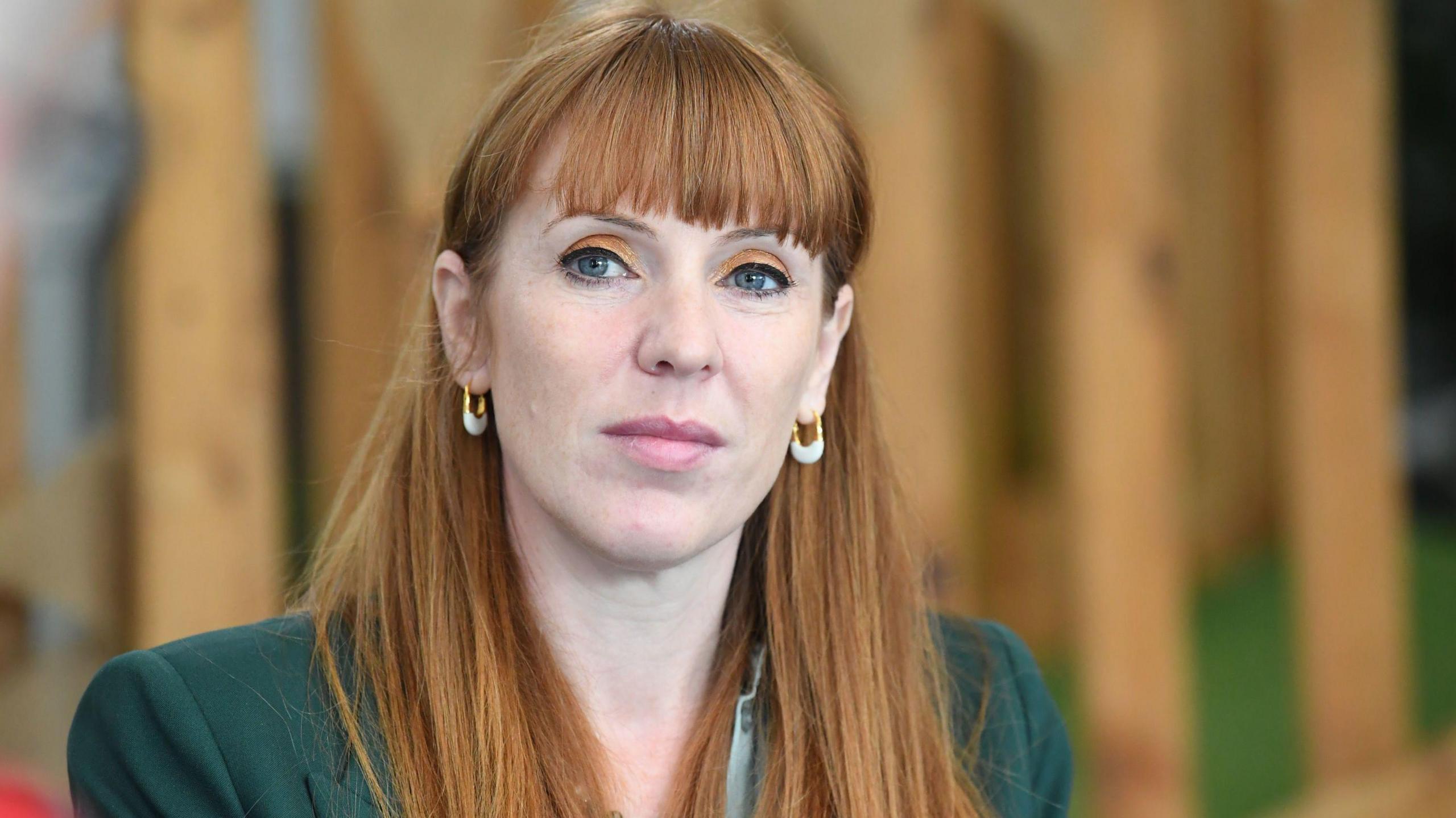Sue Gray quits as Sir Keir Starmer's chief of staff

- Published
Sue Gray has quit her role as Prime Minister Sir Keir Starmer's chief of staff, saying she "risked becoming a distraction".
She had been caught up in rows over pay, after BBC News revealed her salary was higher than Sir Keir's, and donations from Lord Waheed Alli.
A Downing Street spokeswoman confirmed Ms Gray, who became a household name as the Partygate investigator, was taking up a new role as the prime minister's envoy for nations and regions.
Labour said Ms Gray would be replaced by Morgan McSweeney, who was previously chief adviser to the prime minister and masterminded Labour’s general election campaign.
Why it was likely Sue Gray would go
- Published6 October 2024
Who is Sue Gray, Keir Starmer's former adviser?
- Published6 October 2024
Starmer defends Sue Gray after reports of No 10 rifts
- Published15 September 2024
Why finding out about Sue Gray’s salary really matters
- Published19 September 2024
Ms Gray said it had been an honour to "play my part in the delivery of a Labour government" as Sir Keir's chief of staff, both in opposition and in No 10.
"However in recent weeks it has become clear to me that intense commentary around my position risked becoming a distraction to the government’s vital work of change," she said.
"It is for that reason I have chosen to stand aside, and I look forward to continuing to support the prime minister in my new role."
Thanking Ms Gray for her work, Sir Keir said he was "delighted" she would stay by his side in her new role, and added the shake-up showed his "determination to deliver".
Defence Secretary John Healey told BBC Breakfast that Ms Gray herself said she had become a distraction to the government's work and “that’s why she stepped aside”.
He said it was not the first time the centre of government had become "the lightning conductor for wider criticism”.
“In the end people understand government is hard. What they judge governments by is what they do and not what they say," Healey added.
Ms Gray had been subject to intense internal briefings and criticism in a government yet to reach its first 100 days in office.
It was that level of dysfunction that made it clear to Sir Keir that something needed to shift.

She skipped the Labour party conference last month, having been by Sir Keir’s side throughout last year’s.
But the event was overshadowed by controversy over clothing donations from Labour peer Lord Alli, for whom she had reportedly authorised a temporary Downing Street pass.
The level of anger towards her at the heart of government was indicated by high-level sources being willing to leak to the BBC confidential details of her salary.
One reason behind that was special advisers in the team being asked to take pay cuts, as well as unhappiness about a lack of contracts after the election victory.
Nevertheless, Ms Gray still commanded the loyalty of many cabinet ministers.
Just a few weeks ago, Deputy Prime Minister Angela Rayner was defending Ms Gray's "exceptional" work and saying she was being "demonised" in the media without the ability to answer back, with other ministers expressing discomfort at the "gendered" flavour of the attacks.
Supporters made the case that, as a career civil servant, Ms Gray could stay detached from Labour’s internal rows - but one government insider accused Labour's right wing of "grinding away at her" precisely because they were unhappy at a civil servant being in charge.
Now the prime minster has reshuffled his top team, not only by promoting Mr McSweeney, but also making four other appointments, most notably by hiring a strategic communications lead.

Deputy Prime Minister Angela Rayner has previously defended Sue Gray
The move follows private frustration voiced by several sources over Downing Street’s communication strategy, which has led to the appointment of James Lyons as a strategic communications lead.
Mr Lyons is a former political journalist at the Sunday Times and the Daily Mirror, who went on to work for the NHS and for TikTok.
Sir Keir now also has two new deputy chiefs of staff, Vidhya Alakeson and Jill Cuthbertson, and a new principal private secretary – a key civil service role for every prime minister – in Nin Pandit.
Ms Cuthbertson is a Labour veteran, who worked for Gordon Brown and Ed Miliband, and has been promoted alongside Ms Alakeson, who worked as a civil servant before working for Labour in opposition and then in No 10.
John McTernan, Tony Blair's former director of political operations, described Ms Gray as a "great public servant" who would be more suited to her new nations and regions role.
"The truth is, if you don't come up in politics, it's really hard to run things at the top when you have a political role," he told BBC News.
Lord Gavin Barwell, who worked with Ms Gray in his role as chief of staff to former prime minister Theresa May, told Radio 4’s The World this Weekend that she had “made the right judgment” to stand down from her role.
“On a personal level I’ve worked closely with Sue… and she is an incredibly dedicated public servant and I feel for her, but I think she’s made the right judgment, which is when you’re in this kind of job once you become the story it becomes very hard to do the job,” he said.
The Conservative peer criticised the No 10 operation put in place by Sir Keir since becoming prime minister, claiming “because No 10 hasn’t been right we’ve had government by Treasury, too much doom and gloom.”
He added today was a "crucial moment for the prime minister – he’s got to get the second iteration of his No 10 operation right if he’s going to recover some of the political ground he’s lost over the last couple of months."